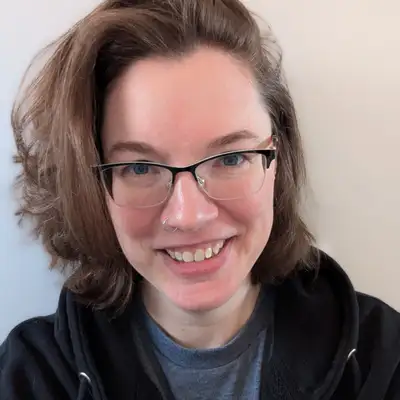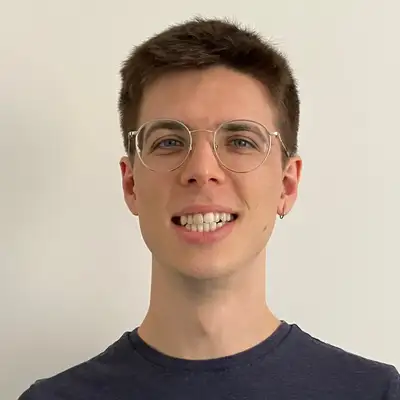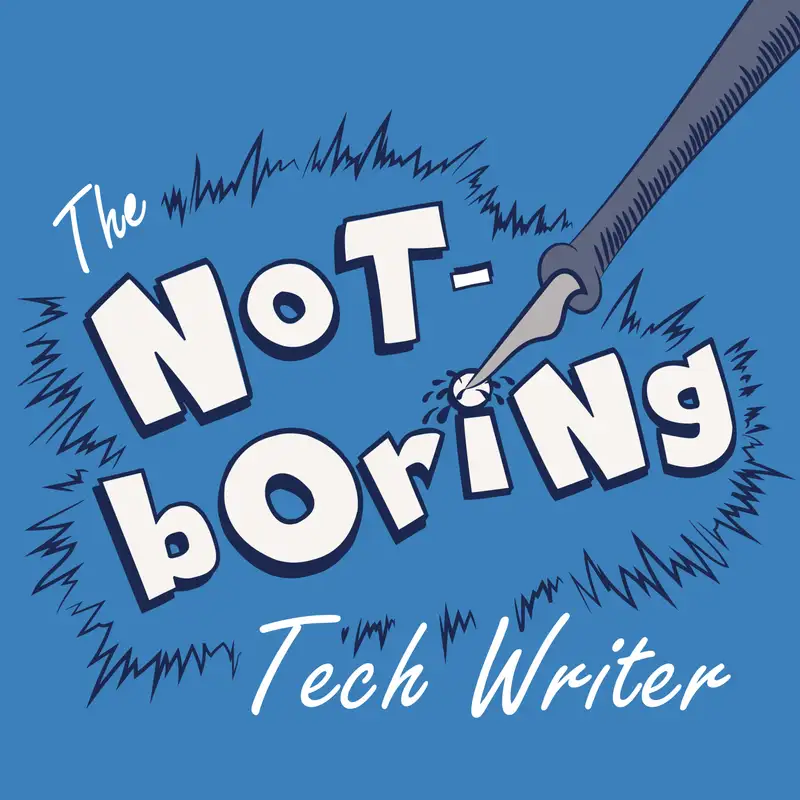Kate sounds off on knowledge sharing and docs stewardship
In this solo episode, I share an update on my content update progress. I also reflect on Marcia Riefer Johnston’s interview (S3:E8) and on the idea of docs stewardship as opposed to docs ownership.
—
I’ve continued my work to update the KnowledgeOwl Support Knowledge Base to align with major navigation and UI changes that were rolled out in December. I updated an additional 91 articles since my last episode, taking my total to 457. 🎉 I also reorganized another three Features subcategories, taking me to the milestone of having updated half those categories using content type-inspired information architecture. I also relocated 12 mice from my basement.
Marcia’s episode prompted a lot of reflection for me. Her infectious, unbridled enthusiasm for this work—from learning new tools to new domains— reminded me of all the reasons I love the craft of technical writing, and how thankful I am that for the last year I’ve largely “only” been doing technical writing. I also appreciated Marcia’s exhortations to share what you know because you never know what great things will come from sharing your knowledge. Too often, we don’t share what we know because we don’t think we know “enough” (whatever that is). But sharing knowledge is a gift to others.
—
I’ve continued my work to update the KnowledgeOwl Support Knowledge Base to align with major navigation and UI changes that were rolled out in December. I updated an additional 91 articles since my last episode, taking my total to 457. 🎉 I also reorganized another three Features subcategories, taking me to the milestone of having updated half those categories using content type-inspired information architecture. I also relocated 12 mice from my basement.
Marcia’s episode prompted a lot of reflection for me. Her infectious, unbridled enthusiasm for this work—from learning new tools to new domains— reminded me of all the reasons I love the craft of technical writing, and how thankful I am that for the last year I’ve largely “only” been doing technical writing. I also appreciated Marcia’s exhortations to share what you know because you never know what great things will come from sharing your knowledge. Too often, we don’t share what we know because we don’t think we know “enough” (whatever that is). But sharing knowledge is a gift to others.
Thanks to a conversation with a friend, I’ve started to come around to the idea of docs stewardship rather than docs ownership. “Stewardship” comes from the Old English words for house and guard. Stewards originally managed estates for medieval lords. I extend this into the world of documentation (doesn’t “Guardian of the Docs” sound like an awesome way to describe what we do? Maybe a swag idea, too, non?). Most modern definitions of stewardship include the idea of “careful and responsible management of something entrusted to one’s care” (source), though they may also add sustainability, ethical use, or “a duty to protect and maintain assets which might be natural, financial, or informational” (source). Marcia’s observation that a lot of a tech writer’s job involves project and process management aligns with this approach, I believe. I explore some other ways I like this docs stewardship model and then draw a comparison between tech writers and gardeners.
Resources discussed in this episode:
- KnowledgeOwl Support KB, Features category
- Merriam Webster’s definition of stewardship
- meaningdictionary.com’s explanation of Steward
- Chris Drew’s 25 Stewardship Examples
- TNBTW Episode 8
—
Contact The Not-Boring Tech Writer team:
We love hearing your ideas for episode topics, guests, or general feedback:
Join the discussion by replying on Bluesky
Contact Kate Mueller:
Contact KnowledgeOwl:
Creators and Guests

Host
Kate Mueller
Kate is a documentarian and knowledge base coach based in Midcoast Maine. When she's not writing software documentation or advising on knowledge management best practices, she's out hiking and foraging with her dog. Connect with her on LinkedIn, Bluesky, or Write the Docs Slack.

Producer
Chad Timblin
Chad is the Head of Operations for The Not-Boring Tech Writer. He’s also the Executive Assistant to the CEO & Friend of Felines at KnowledgeOwl, the knowledge base software company that sponsors The Not-Boring Tech Writer. Some things that bring him joy are 😼 cats, 🎶 music, 🍄 Nintendo, 📺 Hayao Miyazaki’s films, 🍃 Walt Whitman’s poetry, 🌊 Big Sur, and ☕️ coffee. Connect with him on LinkedIn or Bluesky.

